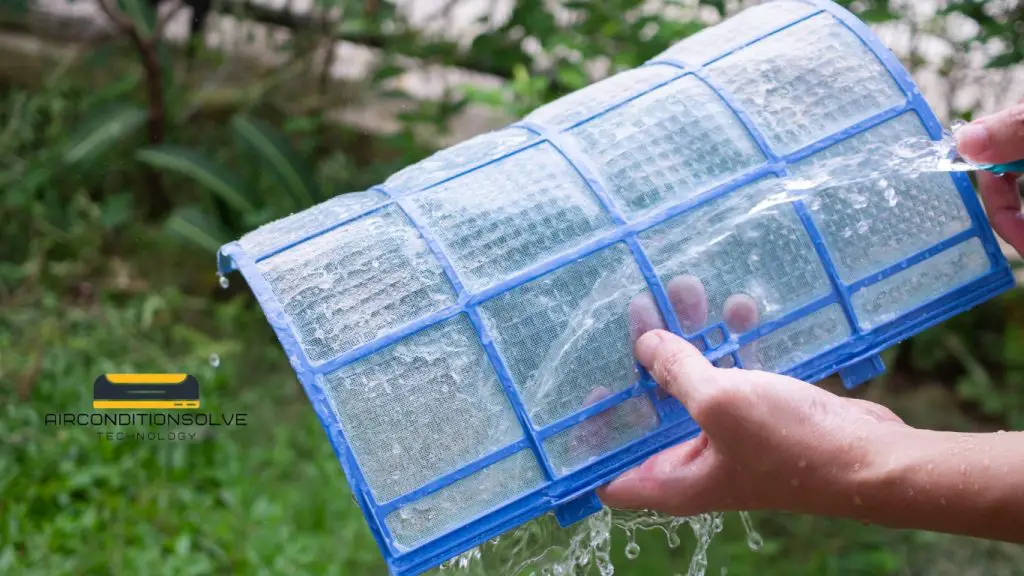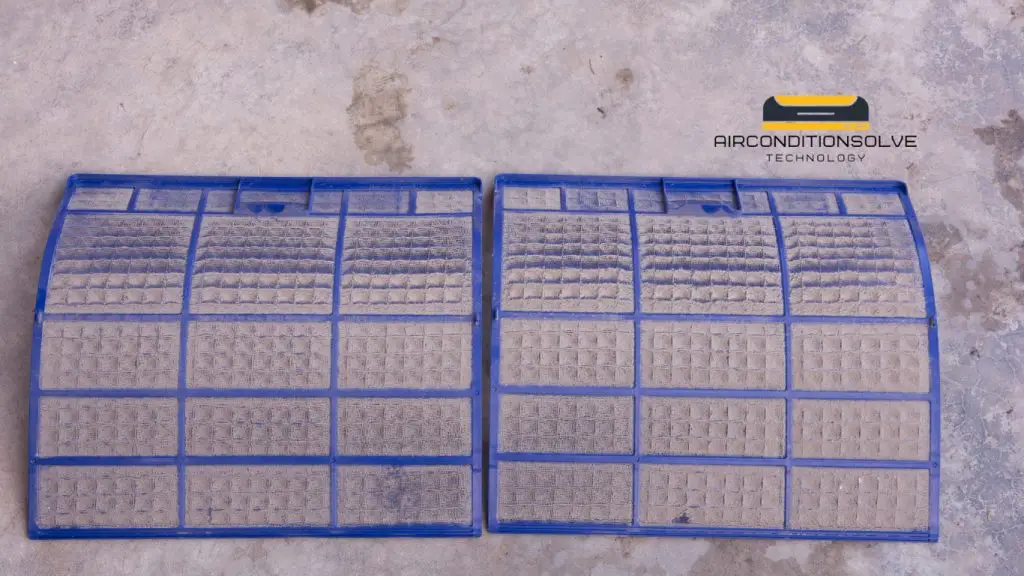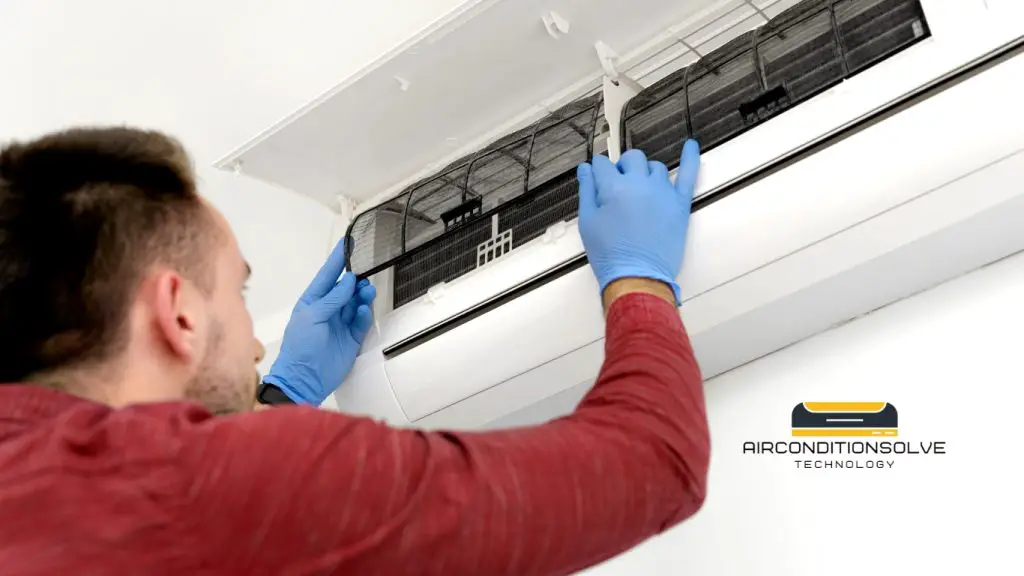To clean and replace air conditioner filters, remove the filter, clean it thoroughly, and then replace it with a new one. Neglecting to clean or replace the filters can lead to reduced airflow and decreased cooling efficiency.
Additionally, dirty filters can also impact the air quality in your home. We will discuss the step-by-step process of cleaning and replacing air conditioner filters, providing you with a comprehensive guide to ensure optimal performance and longevity of your cooling system.
By following these simple maintenance steps, you can keep your air conditioner running smoothly and efficiently, ensuring a comfortable indoor environment. So, let’s dive into the details of cleaning and replacing air conditioner filters.
Importance Of Clean Air Conditioner Filters
The importance of clean air conditioner filters cannot be emphasized enough. Regularly cleaning and replacing the filters in your air conditioner is essential for several reasons. In this article, we will discuss the importance of clean air conditioner filters and how they can benefit you and your home.
Improve Indoor Air Quality
One of the primary reasons to keep your air conditioner filters clean is to improve the indoor air quality of your home. The filters in your air conditioner are designed to trap dust, pollen, pet dander, and other airborne particles that can circulate in your living space. Over time, these filters get clogged with debris, which can decrease their effectiveness in capturing these pollutants. By regularly cleaning or replacing your filters, you can ensure that the air circulating in your home is clean and free from harmful contaminants. This is especially important for individuals who suffer from allergies or respiratory conditions.
Enhance Air Circulation
A clean air conditioner filter allows for better air circulation throughout your home. When filters are clogged with dirt and debris, the airflow is restricted, resulting in less efficient cooling. This can lead to uneven temperatures in different rooms and increased strain on your air conditioning system. By keeping your filters clean, you can ensure a consistent and comfortable airflow, providing even cooling throughout your home.
Increase Energy Efficiency
Dirty filters can significantly impact the energy efficiency of your air conditioning system. When filters are clogged, your air conditioner has to work harder to push air through the debris. This increased workload leads to higher energy consumption and higher utility bills. By regularly cleaning or replacing your filters, you can help your air conditioner run more efficiently, saving both energy and money in the long run.
Extend The Lifespan Of The Air Conditioner
Regular maintenance, including cleaning or replacing filters, can help extend the lifespan of your air conditioner. When filters are dirty, your air conditioning system has to work harder to cool your home, putting additional strain on the components. This can lead to premature wear and tear and costly repairs. By keeping your filters clean, you can ensure that your air conditioner operates smoothly and efficiently, ultimately prolonging its lifespan.
It’s clear that clean air conditioner filters play a crucial role in maintaining a comfortable and healthy indoor environment. By improving indoor air quality, enhancing air circulation, increasing energy efficiency, and extending the lifespan of your air conditioner, you can enjoy cool and clean air while also saving money in the long run. So, make sure to prioritize regular cleaning or replacement of your air conditioner filters to reap these benefits.

Signs That Indicate The Need For Filter Cleaning Or Replacement
Regularly cleaning and replacing air conditioner filters is essential for maintaining optimal performance and indoor air quality. Over time, these filters accumulate dirt, dust, and debris, which can hamper airflow and reduce the cooling effectiveness of your AC unit. In addition to this, neglected filters can lead to increased energy consumption and higher utility bills. To ensure that your air conditioner functions efficiently and provides clean and cool air, it’s crucial to be aware of the signs that indicate the need for filter cleaning or replacement. Let’s take a closer look at these signs:
Reduced Airflow
One of the first signs that your air conditioner filters need cleaning or replacement is reduced airflow. If you notice weak or diminished airflow from your vents, it indicates that your filters are clogged with dirt and debris. Restricted airflow not only affects the cooling capacity of your AC system but also puts unnecessary strain on the unit, which can potentially lead to other mechanical issues. To ensure unrestricted airflow and proper cooling, it’s important to clean or replace your filters regularly.
Decreased Cooling Effectiveness
Another indicator that your air conditioner filters need attention is decreased cooling effectiveness. If you find that your AC is no longer providing adequate cooling to maintain a comfortable indoor temperature, it could be due to clogged filters. Filters that are covered in dust and debris obstruct the passage of air through the system, making it harder for the cool air to reach your living spaces. By cleaning or replacing your filters, you can restore the cooling efficiency of your air conditioner and maintain a refreshing environment.
Increased Energy Bills
One of the most noticeable signs that your air conditioner filters need cleaning or replacement is an unexpected spike in energy bills. Clogged filters force the AC unit to work harder to cool your home or office, resulting in increased energy consumption. The harder your air conditioner has to work, the more energy it requires to maintain desired temperatures. By cleaning or replacing your filters regularly, you can ensure that your AC unit operates efficiently, preventing unnecessary energy wastage and reducing your electricity bills.
Dust Accumulation On Filters
A visual cue that suggests your air conditioner filters require attention is the accumulation of dust and debris on the filters. Over time, as the filters capture airborne particles, they become dirty and discolored. If you notice a thick layer of dust coating your filters, it’s time to clean or replace them. Neglecting the cleaning or replacement of dirty filters not only impacts the performance of your air conditioner but also allows the collected dust and allergens to circulate in your indoor air, potentially causing respiratory issues or allergies.

Steps To Clean Air Conditioner Filters
Cleaning the air conditioner filters is a crucial part of regular maintenance to keep your AC unit running efficiently. Over time, these filters can become clogged with dust, dirt, and allergens, which can impact the performance of your air conditioner and reduce the quality of the air in your home. In this section, we will guide you through the steps to clean your air conditioner filters, ensuring that your AC unit operates at its best.
Turn Off The Air Conditioner
Before starting the cleaning process, it’s important to turn off the air conditioner. This will ensure your safety and prevent any damage to the unit. Locate the power switch or control panel on your AC unit and switch it off.
Locate The Filters
Once the air conditioner is turned off, you need to locate the filters. In most cases, the filters can be found behind the front panel of the AC unit. It may require removing the panel or opening a compartment to access the filters. Consult your air conditioner’s user manual if you’re unsure about the exact location.
Remove The Filters
Now that you have located the filters, gently remove them from the unit. Take note of how the filters are positioned before removing, as this will help you with the reinstallation process later on. If there are multiple filters, remove them one by one.
Vacuum Or Rinse The Filters
With the filters in hand, you have two options to clean them – vacuuming or rinsing. For light dust and debris, you can use a vacuum cleaner with a brush attachment to remove the buildup. For more stubborn dirt and grime, rinsing the filters with water can be effective. Place the filters under running water and gently rinse until clean.
Dry The Filters
After cleaning the filters, make sure to thoroughly dry them before reinstalling. Excess moisture can lead to mold growth and reduce the effectiveness of the filters. You can air-dry the filters by placing them on a clean towel in a well-ventilated area or use a fan to speed up the drying process.
Reinstall The Filters
Once the filters are dry, it’s time to reinstall them back into the air conditioner. Follow the reverse order of the removal process, ensuring that the filters are placed correctly according to the position noted earlier. Make sure the filters are securely in place before closing the front panel or compartment.
Regularly cleaning your air conditioner filters will not only improve the performance of your AC unit but also contribute to better indoor air quality. By following these steps, you can ensure that your filters are clean and functioning optimally, providing you with cool, clean air throughout the summer months.


Steps To Replace Air Conditioner Filters
Regularly cleaning and replacing the air conditioner filters is essential to maintain the efficiency and longevity of your cooling system. Not only does it help improve the indoor air quality by trapping dust, pollen, and allergens, but it also ensures proper airflow and prevents strain on the unit. Follow these simple steps to replace your air conditioner filters.
Determine The Filter Type And Size
The first step in replacing your air conditioner filter is to determine the type and size of the filter you need. The filter type can vary depending on the make and model of your unit, while the size is typically indicated on the side of the existing filter. Take note of these specifications to ensure you purchase the correct filter for your system.
Purchase The Correct Filter
Once you have determined the type and size of the filter, it’s time to purchase a new one. You can find air conditioner filters at most home improvement stores or online retailers. It’s important to buy the correct filter to maintain the efficiency and performance of your air conditioner.
Turn Off The Air Conditioner
Before you begin the replacement process, make sure to turn off the air conditioner. This will prevent any potential accidents or damage to the unit during the filter replacement.
Locate And Remove The Old Filter
Find the location of the air filter in your air conditioning unit. It is usually located near the return air vent or in the blower compartment. Once you locate the filter, carefully remove the old filter by pulling it out of its slot.
Insert The New Filter
Take the new air conditioner filter and insert it into the slot in the same orientation as the old filter. Most filters have arrows or labels indicating the airflow direction. Make sure to follow these instructions to ensure proper airflow and filtration.
Ensure Proper Placement And Orientation
After inserting the new filter, double-check to ensure it is properly placed and aligned. The filter should fit snugly into the slot without any gaps or misalignment. Proper placement and orientation are crucial for the filter to function effectively and prevent air leakage.
Turn On The Air Conditioner
Now that the new filter is securely in place, you can turn on the air conditioner. Allow the system to run for a few minutes and check for proper airflow and cooling. If everything seems normal, it indicates that the new filter is functioning correctly.
Monitor The Performance Of The New Filter
After replacing the air conditioner filter, it’s important to monitor the performance of the new filter. Check the filter periodically for any signs of dust or debris accumulation, and replace it if necessary. Regular maintenance and filter replacements will ensure the optimal performance of your air conditioning system.

Maintenance Tips To Extend The Lifespan Of Air Conditioner Filters
To maximize the lifespan of your air conditioner filters, regular cleaning and replacement are essential. Follow these maintenance tips to ensure the filters are free from dust and debris, allowing your AC unit to operate efficiently and effectively.
Regular maintenance of your air conditioner filters is crucial to ensure efficient cooling and improve indoor air quality. By following these simple maintenance tips, you can extend the lifespan of your air conditioner filters and keep your unit running smoothly:
Regularly Clean Or Replace Filters
To maintain optimal airflow and prevent dust and debris buildup, it is important to regularly clean or replace your air conditioner filters. This keeps your unit functioning efficiently and prevents strain on the motor. A clogged or dirty filter can decrease airflow, reduce cooling performance, and even lead to system breakdowns.
When cleaning your filters, refer to the manufacturer’s instructions or follow these general steps:
- Turn off the power to your air conditioning unit.
- Open the filter compartment, which is usually located on the air handler unit.
- Remove the filter and gently clean it using a vacuum or by rinsing it with lukewarm water. For more stubborn dirt, you can use mild soap.
- Make sure the filter is completely dry before re-installing it. If it’s damaged or heavily soiled, it’s best to replace it with a new one.
Keep The Surrounding Area Clean
Another important maintenance tip is to regularly clean the area surrounding your air conditioning unit. This prevents dirt, leaves, and other debris from getting into the system and clogging the filters. Make sure there is at least two feet of clearance around the unit, removing any vegetation or obstructions that can hinder proper airflow.
Schedule Professional Maintenance Checks
In addition to regular cleaning, it is recommended to schedule professional maintenance checks for your air conditioner. HVAC technicians have the expertise to inspect the entire system, including the filters, for any potential issues. They can identify and address problems early on, ensuring optimal performance and extending the lifespan of your filters and the unit as a whole.
Avoid Blocking Air Vents
Proper airflow is essential for your air conditioner to operate efficiently. To ensure this, avoid blocking air vents with furniture, curtains, or other objects. Blocked vents can disrupt airflow and cause strain on the system, leading to reduced cooling capacity and increased energy consumption.
Check For Air Leaks
Lastly, it’s important to check for air leaks in your air conditioning system. Leaks can lead to wasted energy and reduced cooling performance. Inspect the ductwork, as well as the areas around windows and doors, for any gaps or cracks. Seal any leaks using appropriate materials or seek professional assistance if needed.
By following these maintenance tips, you can ensure that your air conditioner filters remain clean and efficient, leading to improved indoor air quality and a longer lifespan for your unit.

Frequently Asked Questions For How To Clean And Replace Air Conditioner Filters?
How Often Should You Clean And Replace Air Conditioner Filters?
It is recommended to clean or replace air conditioner filters every 1-3 months, depending on usage and air quality. Regular maintenance ensures optimal performance and reduces energy consumption.
Conclusion
Regularly cleaning and replacing your air conditioner filters is crucial for maintaining indoor air quality and maximizing the efficiency of your cooling system. By following the simple steps outlined in this blog post, you can ensure that your air filters remain clean and effective all year round.
Remember, clean air filters not only prolong the lifespan of your air conditioner but also contribute to a healthier environment for you and your family. Stay cool and breathe easy!

